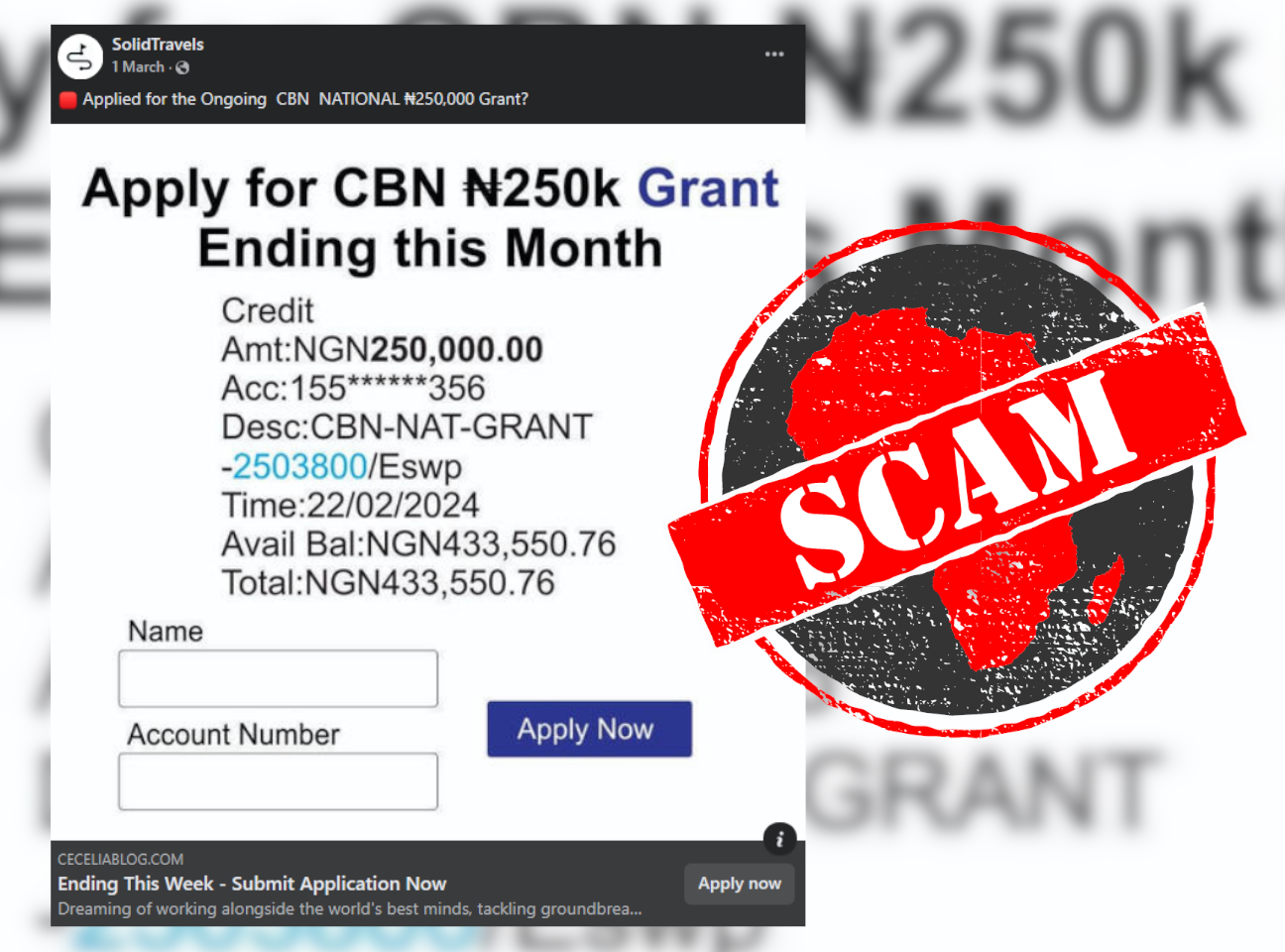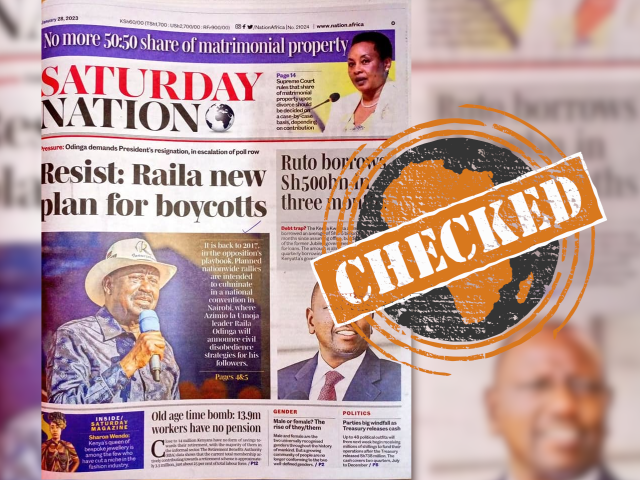IN SHORT: At least three Facebook pages are promoting non-existent government grants and loans. A closer look reveals that the pages are luring Nigerians to visit websites about US visas.
The Facebook pages Fly Agent, 4K Travels and SolidTravels advertise grants and loans allegedly from the Nigerian government.
On 21 December 2023, the Fly Agent page urged Nigerians to apply for a loan of N250,000 (about US$198), purportedly from the Central Bank of Nigeria (CBN). The post has been republished over 1,000 times and has over 15,000 comments.
On 7 March 2024, the 4K Travels page also called on Nigerians to apply for a N70,000 (about US$55) “federal government empowerment” grant. The post has received over 370 comments.
A post on the SolidTravels page on 1 March reads: “Applied for the Ongoing CBN NATIONAL ₦250,000 Grant?” The post has received over 2,900 comments.
Nigeria is facing its worst economic crisis in decades, with the rising cost of living leading to protests in some states in February. The government has reportedly made some efforts to reduce the impact on Nigerian people, including releasing 100,000 tonnes of grain in February and budgeting for what it calls “special interventions” to alleviate poverty.
But are the pages’ offers genuine? We checked.

Engagement bait
Africa Check clicked on the links attached to the three posts and they all led to different websites about US visas. The sites claim to promote opportunities to live and work in the US. They give information about the types of visas, how to apply for them and the job opportunities available.
The sites make no mention of grants or loans from the Nigerian government.
This is an example of engagement bait. These are usually social media posts that ask people to interact by liking, commenting or sharing. It increases the post’s reach but there is no reward. The posts are usually aimed at directing more people to a website or social media account.
These websites may also attempt to steal valuable personal information.
With many Nigerians struggling to make ends meet, it’s important to follow official government websites and social media platforms to avoid being scammed.
Read our guide to Facebook scams and how to spot them here.
Republish our content for free
For publishers: what to do if your post is rated false
A fact-checker has rated your Facebook or Instagram post as “false”, “altered”, “partly false” or “missing context”. This could have serious consequences. What do you do?
Click on our guide for the steps you should follow.
Publishers guideAfrica Check teams up with Facebook
Africa Check is a partner in Meta's third-party fact-checking programme to help stop the spread of false information on social media.
The content we rate as “false” will be downgraded on Facebook and Instagram. This means fewer people will see it.
You can also help identify false information on Facebook. This guide explains how.





Add new comment